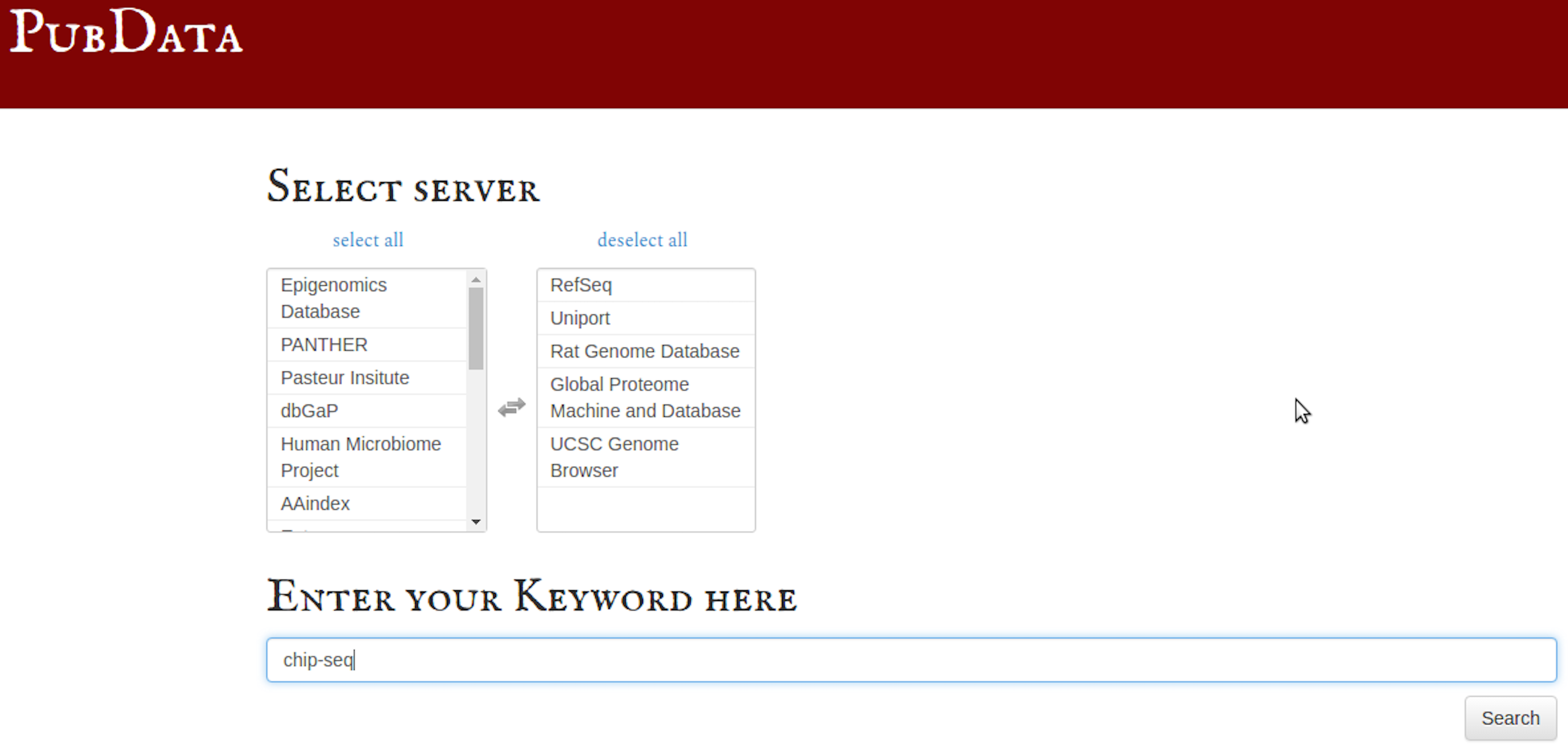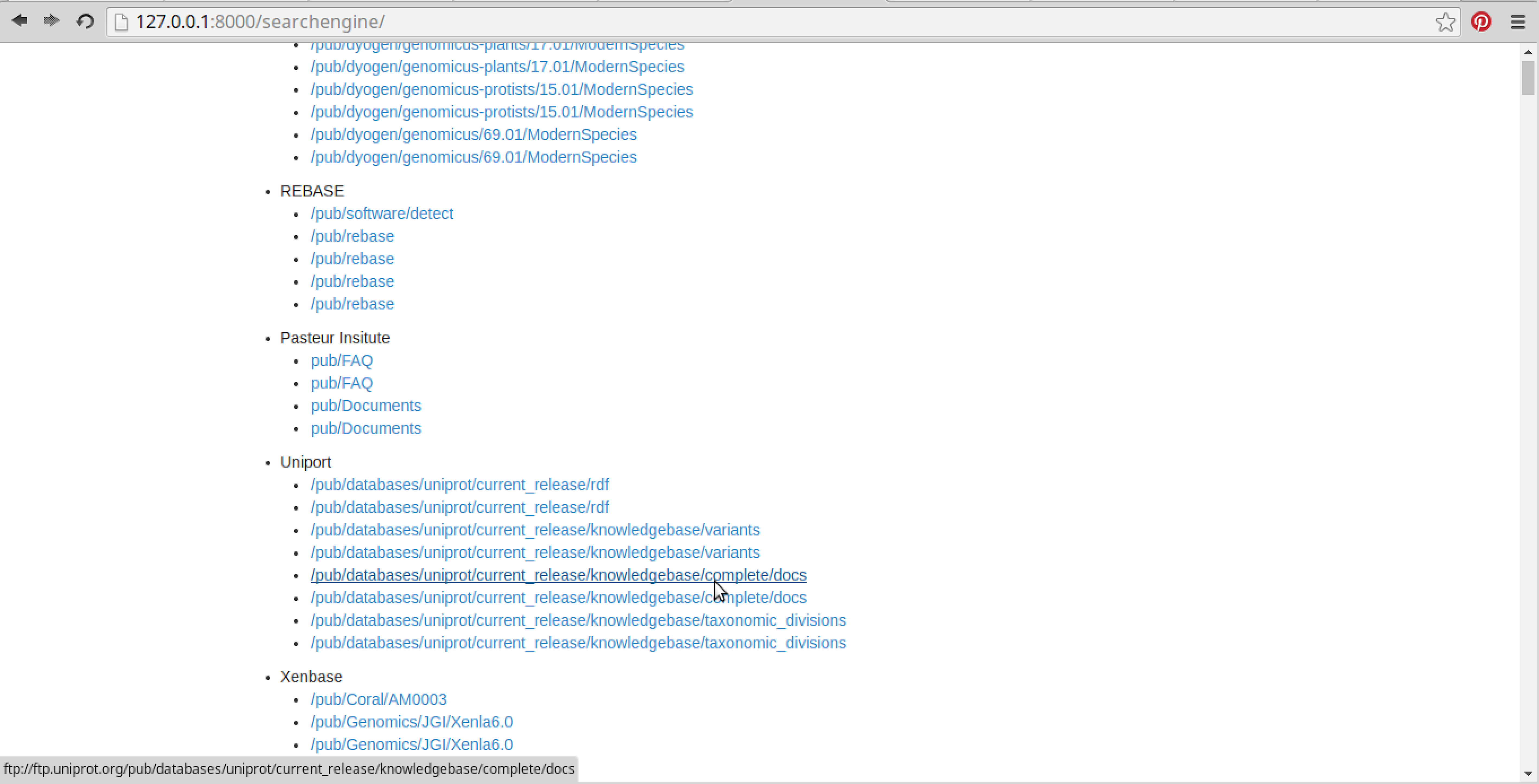
PubData is a search engine and file retrieval system for all bioinformatics databases worldwide. PubData searches biomedical FTP data in a user-friendly fashion similar to how PubMed searches biomedical literature. PubData is hosted as both a web application and a standalone graphical user interface (GUI) software program, while PubMed is hosted as an online web server. PubData is built on novel network programming and natural language processing algorithms that can patch into the FTP servers of any user-specified bioinformatics database, query its contents, and retrieve files for download.
PubData is written in the Python programming language (specifically, Django and PyQt4). PubData can remotely search, access, view, and retrieve files from the deeply nested directory trees of any major bioinformatics database via a local computer network. By assembling all major bioinformatics databases under the roof of one software program, PubData allows the user to avoid the unnecessary hassle and non-standardized complexities inherent to accessing databases one-by-one using an Internet browser. More importantly, it allows a user to query multiple databases simultaneously for user-specified keywords (e.g., human, cancer, transcriptome). As such, PubData allows researchers to search, access, view, and download files from the FTP servers of any major bioinformatics database directly from one centralized location. By using only a GUI or web application, PubData allows the user to simultaneously surf multiple bioinformatics FTP servers directly from the comfort of their local computer.
Please cite: "Khomtchouk et al.: 'PubData: search engine for bioinformatics databases worldwide', 2016: http://dx.doi.org/10.1101/069575" within any source that makes use of any methods inspired by PubData.


PubData directory.
When you open PubData, first pick a bioinformatics database to login to:
Logged into PANTHER (Protein ANalysis THrough Evolutionary Relationships) Classification System database:
If you don’t see your favorite database in the list, you can manually insert it yourself (convenient for recently published databases):
Let’s say you want to "Google search" multiple databases simultaneously:
Keyword search for ChIP-seq files across these selected databases (multiple keywords may be used as well):
Showing all relevant search results pertaining to ChIP-seq files across all selected databases:
Keyword search for RNA-seq files across these selected databases (multiple keywords may be used as well):
Showing all relevant search results pertaining to RNA-seq files (from the selected databases):